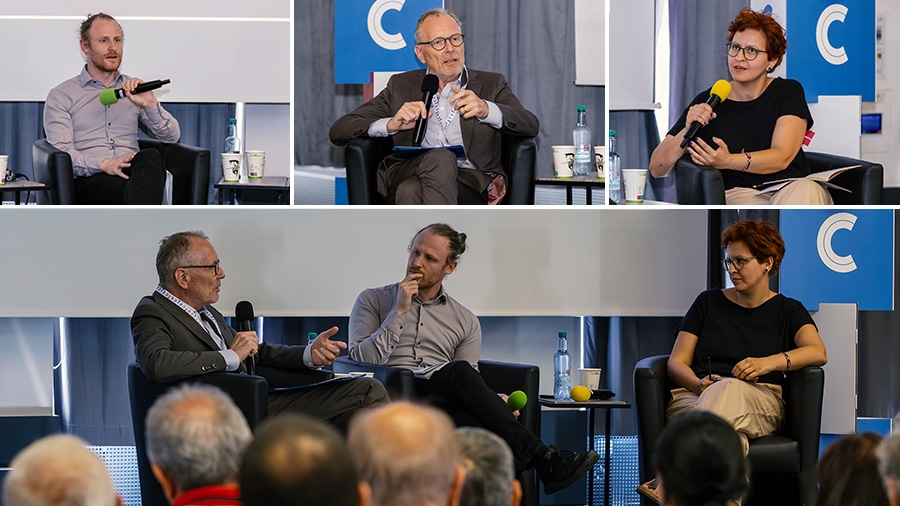Christoph Menke
A Liberation Theory
Moderators: Yeganeh Khoie and André Möller
This discussion explores the complexities of liberation movements, their failures, and the need for a new understanding of liberation that transcends traditional Western models. The conversation primarily focuses on Christoph Menke’s presentation, “A Theory of Liberation” and its key concepts.
The Failure of Traditional Liberation Movements
Menke argues that many past liberation movements have not led to true freedom, often resulting in new forms of oppression. This highlights the need for critical reflection on what liberation truly entails. The Western form of liberation is seen as bound to fail because it reproduces domination rather than eliminating it.
The paradox of liberation lies in the fact that the subjects of liberation are often shaped by the very oppressions they seek to escape. This complicates the notion of self-liberation, as the subject is not exempt from forms of domination but is rather the product of them.
Liberation from Liberation
Menke proposes that true liberation would be a “liberation from liberation” – freeing ourselves from the flawed concepts of liberation that have shaped our current forms of domination. This involves a dual struggle: against oppression and against the problematic aspects of liberation itself.
The Retrospective Nature of Liberation Theory
A theory of liberation, according to Menke, is always retrospective. This retrospective approach serves two purposes:
- It allows for a critical re-evaluation of past liberation attempts to understand why they failed.
- It reveals both the extent to which we are formed by domination and the aesthetic counter-potential that allows for new possibilities.
The Aesthetic Force and Fascination
Menke introduces the concept of an “aesthetic force” or “fascination” as an alternative to traditional models of liberation. This force represents a potentiality that exceeds predetermined capacities and opens up new possibilities.
Aesthetic experiences, particularly moments of fascination, can unlock new perspectives by creating gaps in our socially defined world. These experiences confront us with something that doesn’t fit our usual patterns of recognition, potentially leading to new forms of understanding and action.
Subjectivity and Potentiality
Menke argues that subjectivity is not entirely defined by socially determined capacities. There is always an exceeding potential or force that goes beyond these capacities. This potentiality is not something we own or learn, but rather something that becomes active and visible through experiences.
Collective Action and Memory
The discussion emphasizes the importance of collective efforts in the struggle for liberation. True liberation involves remembering and integrating past experiences of freedom into current struggles, ensuring that movements are rooted in shared histories.
The Role of Pain and Suffering
Pain and suffering are recognized as powerful motivators for collective action, driving individuals to pursue liberation against oppressive systems. This emotional backdrop is crucial for understanding the impetus for change.
The Circularity of Liberation
Liberation is presented as a continuous process that requires ongoing reflection and adaptation. Each movement must learn from its predecessors to avoid repeating past mistakes.
Universal Potential for Liberation
The discussion suggests that liberation can be a universal experience transcending cultural and historical boundaries, emphasizing the common human capacity for freedom rooted in moments of fascination.
Implications for Current Movements
The conversation touches on the relevance of these ideas to contemporary liberation movements, such as the Woman, Life, Freedom movement/uprising in Iran. It highlights the need for new approaches to liberation that address the paradoxes and complexities identified by Menke.
In conclusion, Menke’s theory of liberation challenges traditional Western concepts and proposes a more nuanced understanding of the liberation process. By emphasizing the role of aesthetic experiences, the paradoxes of subjectivity, and the need for continuous reflection, this approach offers new perspectives on how to pursue meaningful social and political change.
The discussion underscores the importance of critically examining past liberation attempts while remaining open to new possibilities emerging from moments of fascination and collective action.
The video below is recommended for those more interested in this topic.



